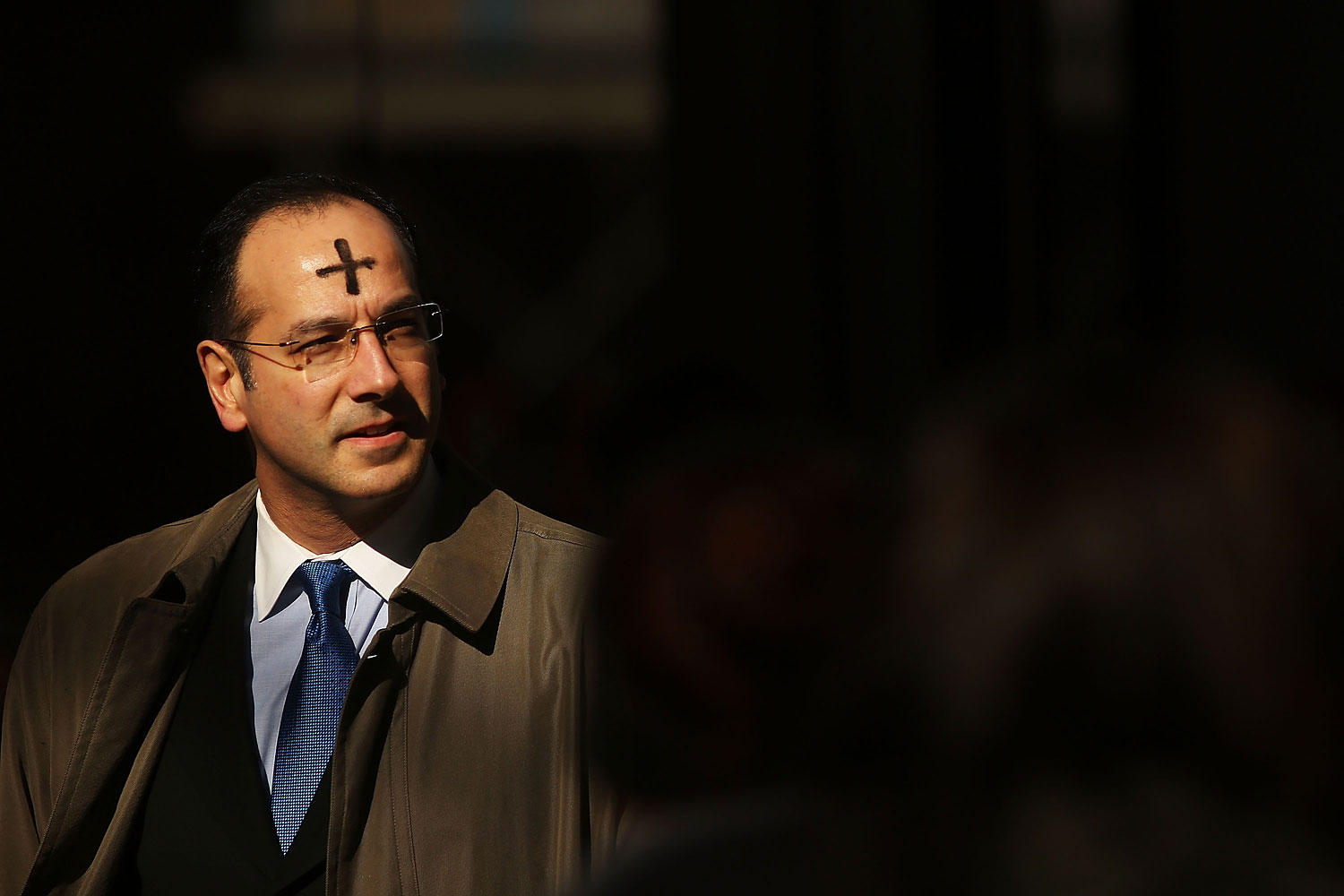
Today Christians around the world will mark the beginning of Lent with the ancient tradition of receiving ashes on their foreheads. This season and the customs associated with it are as old as the faith itself. It marks a sacred time of conversion for the Christian faithful as they commemorate the life, death and resurrection of Jesus.
But the season of Lent is not just for Christians. It offers everyone a time for reflection and an opportunity for change and growth. The very first act of Lent reveals this reality.
By receiving and wearing the ashes formed into a sign of the cross on their foreheads, Christians are making the bold claim that lowliness and humility offers the surest way to experience the full joy of humanity.
The cross—all too often domesticated by its familiarity—must not be romanticized. It was the instrument of torture used by the Romans to execute Jesus. It would have been unthinkable among Jesus’s contemporaries for anyone to wear publicly such a symbol of shame and humiliation.
But for the Christian, the cross of Jesus and his death upon it is the source and summit of life. It reveals who God is and whom God chooses. In the time before Jesus’s birth, the expectation of the Messiah was very strong in Israel. They expected a hero who would at last set them free from slavery. But Jesus didn’t bring a political liberation, achieved through military campaign. Instead Jesus destroyed death forever and restored life by means of his death on the cross.
Christians believe that God chose Jesus, who was born in poverty and obscurity far from the political and cultural centers of power, to redeem the human race. And it must be noted that God did not choose Jesus in spite of his poverty, but because of it. St. Paul says it well: “Jesus was rich, yet for your sake he became poor, so that by his poverty you might become rich.”
In the person and life of Jesus, the universal possibility of Lent becomes clearer. During this time, we can use his example to reject the superficiality that dominates our modern world and to embrace a new way of love that has the ability to transform our lives.
The “globalization of superficiality” we face—a term coined by Jesuit Father Adolfo Nicolas—is creating an era where the depth of human relationships is slowly being short-circuited by a deadly combination of technological advancement and excessive worldwide materialism. A dizzying pluralism of choices and opportunities makes it hard for us to take time to have authentic relationships and build community. The great irony of this era is that those who have the most experience the least.
Nicolas puts it this way: “When…the ugly or unpleasant sounds of the world can be shut out by one’s MP3 music player, then one’s vision, one’s perception of reality, one’s desiring can also remain shallow. …When one can become “friends” so quickly and so painlessly with mere acquaintances or total strangers on one’s social networks – and if one can so easily “unfriend” another without the hard work of encounter or, if need be, confrontation and then reconciliation – then relationships…become superficial.”
In this emerging dictatorship of superficiality there is little room for the things that make life worth living: love, beauty and romance to name a few. Relationships presuppose time and space. Today’s realities, however, make it much easier to do the bidding of the authorities of popular culture than to take time to build new relationships and to discern different paths.
The antidote to this new reality is in a living a life of sacrifice. Sacrifice clearly defined the life of Jesus of Nazareth, who again and again chose his people over himself. But today the idea seems old fashioned. In fact, we oftentimes associate sacrifice with losing something.
But in truth, sacrifice is an investment that pays dividends far exceeding the initial investment. In sacrifice, we learn the art of love. This isn’t a love that is merely sentiment. It is a love that is rooted in reality. It is a love that involves suffering. In fact, one should never trust a love that doesn’t hurt and costs nothing.
Lent then is a time to learn how to love again. This can go beyond creed or faith. It is an invitation to everyone who wants to find the fullest measure of living. Now is a good time to ask ourselves what we can give up this season in order to enrich others by our own poverty. In doing so, we can find a new experience of love that can make us whole and can set us free.
Christopher Hale is a senior fellow at Catholics in Alliance for the Common Good. He helped lead national Catholic outreach for President Obama’s re-election campaign. You can follow him on Twitter @chrisjollyhale.
More Must-Reads From TIME
- The 100 Most Influential People of 2024
- The Revolution of Yulia Navalnaya
- 6 Compliments That Land Every Time
- What's the Deal With the Bitcoin Halving?
- If You're Dating Right Now , You're Brave: Column
- The AI That Could Heal a Divided Internet
- Fallout Is a Brilliant Model for the Future of Video Game Adaptations
- Want Weekly Recs on What to Watch, Read, and More? Sign Up for Worth Your Time
Contact us at letters@time.com